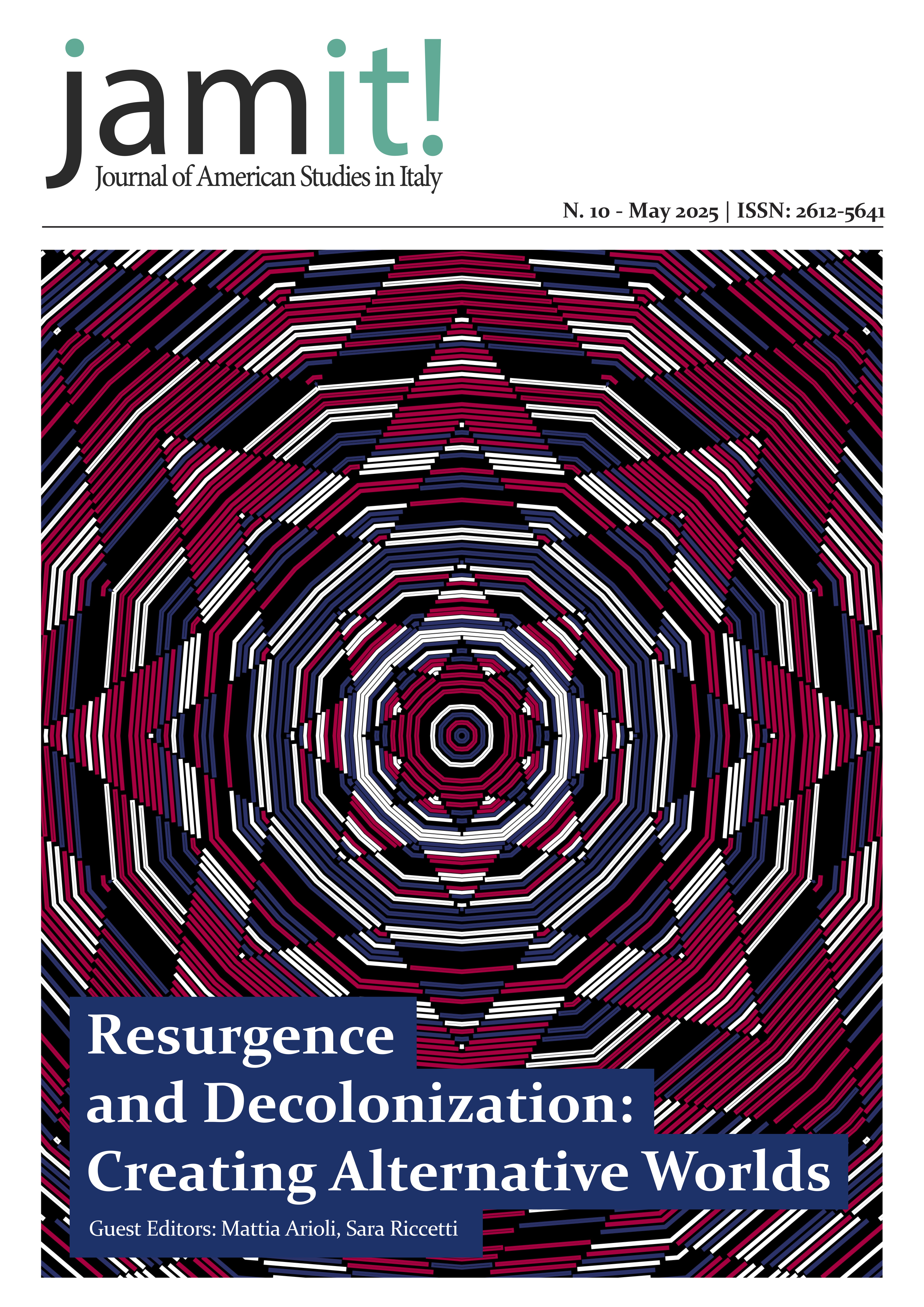Narrative Cartographies of Native American Resurgence:
Women’s Self-Constructions, Transmotion, and the Decolonization of Spatial Inquiry
DOI:
https://doi.org/10.13135/2612-5641/10168Keywords:
(counter)mapping, life writing, resurgence, spatial inquiry, survivanceAbstract
Drawing on a long-standing history of leadership within their communities, Native American women have become increasingly prominent in the movement for Indigenous resurgence including, but not limited to, their re-articulation of the connection with land. In this paper, I discuss Native American women’s literary cartographies as a strategy towards spatial decolonization, in line with Native American resurgence, a project that aligns with what Linda Tuhiwai Smith (1999) refers to as a shift from being reviewed as research objects to becoming their own researchers. In their self-narratives, Indigenous authors connect such mapping practices to exploring overlying stories—familial, ancestral, historical, and spiritual—that mark autobiographical moments that “take place.” Thematically speaking, the motif of the journey and constant movement can be read as “an attempt to counter, even symbolically reverse, earlier historical displacement of the authors’ respective cultural groups” (Sarkowsky 2020). This paper provides a glimpse into alternative ways to map Indigenous embodied experiences in 21st-century memoirs by Native American female authors—Harjo, Jensen, Elliott, Washuta, and Grover—who adopt renewed representational strategies, utilizing various forms of literary mapping techniques, re-representing their own experiences of land through a complex geography of ties to places, movement, and mobility in textual contexts. Grounding the article in Indigenous feminist place-based and land-based readings that center Indigenous women’s voices at the forefront of struggles for self-determination and sovereignty, and in Vizenor’s oft-quoted notions of survivance and transmotion, I argue that the interplay between movement and rootedness is crucial in these life storiers’ engagement with conceptions of land and place that grapple with the American understanding of territoriality. Women’s life writings serve as oppositional mappings of Western-centered cartographies, thus providing a re-righting and rewriting of sovereign stories. The findings of this analysis hope to enrich the discussion of the decolonization of spatial inquiry and, by extension, Indigenous resurgence.
Downloads
Published
Issue
Section
License
Copyright (c) 2025 Hend ayari

This work is licensed under a Creative Commons Attribution-NonCommercial-NoDerivatives 4.0 International License.
Authors who publish with this journal agree to the following terms:
- Authors retain the copyright and full publishing rights for their submissions to the journal.
- Authors grant the journal right of first publication with the work simultaneously licensed under a Creative Commons Attribution-NonCommercial-NoDerivatives 4.0 International License that allows others to share unedited work for non-commercial purposes with an acknowledgement of the work's authorship and initial publication in this journal.
- Authors are able to enter into separate, additional contractual arrangements for the non-exclusive distribution of the journal's published version of the work (e.g., post it to an institutional repository or publish it in a book), with an acknowledgement of its initial publication in this journal.
- Authors are permitted and encouraged to post their work online (e.g., in institutional repositories or on their website) prior to and during the submission process, as it can lead to productive exchanges, as well as earlier and greater citation of published work (See The Effect of Open Access).




